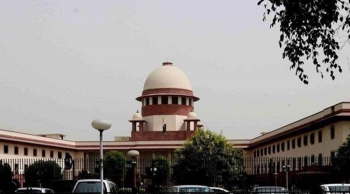
.jpg) Adv. Jijo Thomas Placheril
Adv. Jijo Thomas Placheril
.jpg)
There was a landmark judgment by a two-judge bench of the Supreme Court, comprising Justice J Chelameswar and Justice R. F. Nariman in 2015 on Information Technology Act 2000.
The apex court scrapped Section 66A of the Act that made posting offensive comments online a crime punishable by jail.
In 2012 two girls were arrested by Mumbai police under the Act for expressing their displeasure through a Facebook post on a bandh (hartal), which was called by Shiv Sena in Mumbai at the death of Bal Thackery.
A law student named Shreya Singhal from Delhi University, by the way of public interest, filed a writ petition under Article 32 of the Constitution, challenging the validity of the section and claiming the Act as violative of freedom of speech and ex
Section 66 A is a penalizing Section and the punishment extends to three years of imprisonment with fine. The Section uses terms like grossly offensive, menacing character, known to be false, causing annoyance, inconvenience, danger, obstruction, insult, injury, criminal intimidation, enmity, hatred, ill will, deceive and mislead.
The Supreme Court observed certain points for scrapping Section 66 A of IT Act:
1. Liberty of thought and ex
2. Every ex
3. The Bench rejected the assurance given by the government during the hearing that certain procedures may be laid down to ensure that the law in question is not abused. The government had also said that it will not misuse the provision.
4. The Bench mentioned that governments come and go but section 66 A will remain forever and no government can give an undertaking about its successor that they will not abuse the same.
The court observed that the ex
After scrapping Section 66 A, six years have been passed. But now to the shock of the Supreme Court, reports say that more than thousand cases have been filed in the country under section 66 A of the Act. Maharashtra 381, Jharkhand 291, Uttar Pradesh 245, Rajasthan 192 are some of the figures in States where cases are registered under this Section. It is intolerable infiltration of the administration into the fundamental rights of individuals, dishonoring the order of the court.
The apex court may apply the legal principle of ignorantia juris non excusat (ignorance of the law excuses not) to those administrative bodies of the states which have taken actions on individuals on a scrapped section. The state governments have to give compensation to those on whom they have taken cognizance for a non-existing offence. That will be the only possible way to avail justice to them.